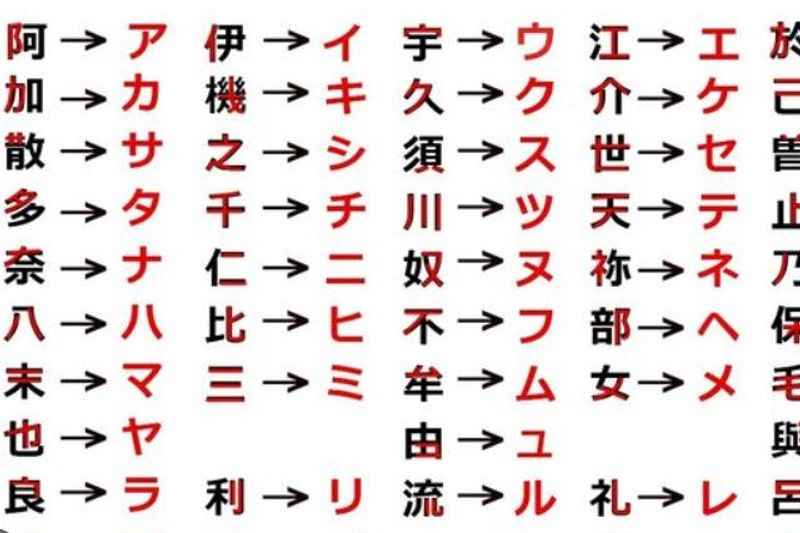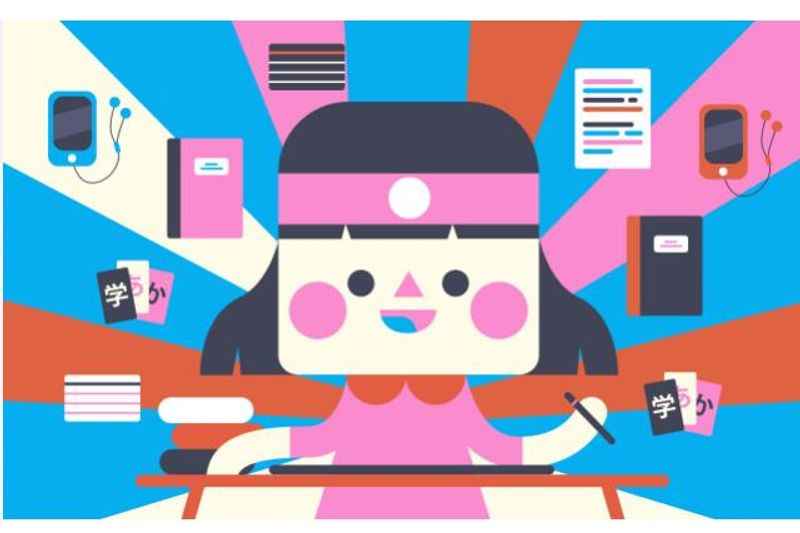How Long Does It Take To Learn Japanese? | 2024 (with Photos)

Japanese is often considered to be one of the hardest languages to learn for English speakers. While it is certainly doable, it takes patience, determination, and great learning resources.
But just how long does it take to learn Japanese?
We will explore various factors that can impact the time it takes you to learn Japanese. These include your learning goals and habits, and your native language.
We will also look at awesome Japanese learning resources and some of the challenges of learning Japanese that can slow you down. Let's dive into this ultimate guide to learning Japanese as quickly and efficiently as you can.
Factors That Impact Your Japanese Language Acquisition

Let's start by exploring some important factors that can impact the time it takes to achieve Japanese proficiency. These encompass your study habits and your native language.
Learning Goals
The first thing you need to think about is what you actually mean when you say you want to learn Japanese.
Do you have an upcoming trip planned? Perhaps you want to be able to find your way around the streets of Tokyo or order at restaurants confidently. Or, are you looking to master every aspect of the language?
We ask this because when people consider how long it takes to learn Japanese, some of them mean total fluency while others mean conversational proficiency. Of course, picking up a few conversational phrases will take a lot less time than learning to read and write kanji.
Kanji is a Japanese script comprising thousands of relatively complex characters used in Japanese writing. Learning Kanji will require a great deal of memorization and practice. The writing system also comprises Hiragana and Katakana.
These scripts are easier to learn as they are considered to be ‘entry-level letters’.
There are four main skills to learning Japanese: listening, speaking, reading, and writing. To master the language, you need to be proficient in all of the above skills. However, some learners are happy to focus solely on speaking and listening.
Study Time
The amount of time you have available to practice Japanese will also play a vital role in how long it takes you to learn the language. The more you practice, the faster you will learn.
If you’ve only got a couple of hours spare each week, then it will take a lot longer for you to learn Japanese. You’ll learn new words and phrases at a slower pace, and you’ll be more susceptible to forgetting what you’ve already learned.
Conversely, if you can dedicate a couple of hours each day to learning Japanese, you’ll be introduced to new words and phrases at a faster rate. Your memory will also work harder and it will be easier to retain the information you’ve already picked up.
However, it’s still worth remembering that Japanese is an incredibly hard language to learn. On average, dedicating a couple of hours each day will bring you to an advanced level of speaking in about 3 years.
That being said, you’ll still be able to communicate effectively in Japanese using more basic phrases in six months to a year.
Your Native Language
Languages evolve over time. This is why there are so many similarities between English and French, for example. If you are a native English speaker, languages such as Spanish, French, Italian, and Portuguese will be a lot easier for you to learn than Japanese.
The intricacies of a language like Japanese will feel very unfamiliar and, as such, this is a hurdle that will add to the amount of time it takes to learn Japanese.
It’s not only speaking that will be unfamiliar to you, either. The Japanese writing system, grammar, and sentence structures are all very different from European languages. This makes it harder to follow reading and writing exercises when you start a Japanese language course.
If you’ve studied an Eastern Asian language before, you’ll find it easier to understand the linguistics and pronunciation, which means it will take a shorter amount of time to begin understanding Japanese.
Your language background plays a crucial role in determining the ease or difficulty of learning Japanese. For native English speakers, languages like Spanish, French, Italian, and Portuguese share similarities that can facilitate language acquisition, making them comparatively easier to learn than Japanese.
Japanese Learning Resources

Nowadays, there is an app for just about anything. Some of the most popular apps out there are language-learning resources. So, let's check out 10 popular language apps for learners of all levels.
Top 10 Apps for Learning Japanese
Learning Japanese has become more accessible than ever, thanks to the plethora of language-learning apps available today. Whether you're a beginner or looking to enhance your existing skills, these top 10 apps offer a variety of features to help you master the Japanese language.
- Duolingo: A popular choice for beginners, Duolingo provides interactive lessons, quizzes, and exercises to learn Hiragana, Katakana, and basic vocabulary.
- Memrise: Known for its fun and engaging approach, Memrise offers user-created courses and multimedia content to build vocabulary and improve pronunciation.
- Anki: Anki is a powerful flashcard app that allows users to create personalized decks for memorizing Kanji characters and other language components.
- Tandem: Connect with native Japanese speakers through Tandem for language exchange and practice speaking skills in real-life conversations.
- HiNative: Ask questions about the Japanese language and culture to native speakers on HiNative and receive quick, personalized responses.
- Lingodeer: Designed specifically for Asian languages, Lingodeer offers comprehensive lessons for learning Japanese grammar and sentence structures.
- JapanesePod101: This app provides audio and video lessons at various proficiency levels, focusing on practical conversations and cultural insights.
- Tae Kim's Guide to Learning Japanese: A comprehensive app offering grammar explanations and exercises, perfect for self-study.
- Kanji Study: For Kanji enthusiasts, Kanji Study offers stroke order animations, quizzes, and practice to master this complex writing system.
- HelloTalk: Practice speaking and writing with native Japanese speakers using HelloTalk's language exchange platform.
With these top-notch apps at your fingertips, mastering Japanese has never been more engaging and convenient. Whether you're on the go or have limited study time, these apps cater to different learning styles, making your language learning journey efficient and enjoyable.
Social Media Can Also Help You to Learn Japanese
Social media platforms can be valuable resources for learning Japanese, offering a dynamic and interactive approach to language acquisition.
Joining Japanese language groups or communities on platforms like Facebook, Reddit, or Discord enables learners to interact with native speakers and fellow learners. These groups often share language tips, cultural insights, and language practice opportunities.
Following Japanese influencers, language experts, or content creators on platforms like Twitter, Instagram, or YouTube exposes learners to authentic content in Japanese. Engaging with their posts, watching videos, and reading tweets can improve listening and reading skills.
By incorporating social media into your language learning routine, you can immerse yourself in the Japanese language and culture while building connections with a vibrant community of learners. The diverse content and real-life interactions make social media a valuable supplement to traditional language learning methods.
These channels offer an invaluable resource for learners to practice listening, improve speaking skills, and gain cultural awareness while embarking on an exciting journey to master the Japanese language.
YouTubers You Should Know About
Discover the top 10 YouTube channels that are a must for learning Japanese.
- Learn Japanese from Zero!: Perfect for beginners, engaging lessons with George Trombley cover powerful grammar and essential words in just minutes a day.
- JapanesePod101: Quick, effective, and fun, offering lessons for all levels, from language basics to writing in Japanese.
- 日本語の森 (Japanese Forest): Ideal for classroom-style learners, providing JLPT level-labeled videos and live streams for all levels.
- Easy2LearnJapanese: Focused on vocabulary expansion, with videos labeled by JLPT levels for easy selection.
- Japanese with Tanaka san: Animated lessons with cute characters teach Japanese, including flashcards, kanji with anime, and more.
- Japonin: Great for advanced learners, offering immersive Japanese-only lectures covering grammar, kanji, and vocabulary.
- Tae Kim: Suitable for beginners, structured lessons concentrate on Japanese characters and pronunciation.
- Japanese with Hanako: Over 100 videos covering grammar, pronunciation, culture, and listening practice.
- Yuko Sensei: College-level Japanese teaching, explaining various aspects of the language with valuable lessons.
- NHK WORLD-JAPAN: A mix of English videos with Japanese interviews, providing cultural insights and language practice.
What To Do If You Don't Have Too Much Free Time

If you find yourself lacking free time but are eager to embark on a language-learning journey, fear not! Learning Japanese can still be achieved even with as little as half an hour to spare each day, it'll just take more time.
Here are some practical tips to study Japanese efficiently and make the most of your limited time:
- Embrace Japanese Culture: Immerse yourself in Japanese culture by watching short videos, reading articles, or listening to podcasts in Japanese during your commute or breaks. This exposure will enhance your understanding of the language.
- Prioritize Speaking Japanese: Focus on developing conversational Japanese skills. Use language learning apps or online resources that offer interactive speaking exercises to practice with. Speaking regularly, even in short bursts, can improve your proficiency over time.
- Opt for Online Japanese Lessons: Online Japanese courses often offer flexible schedules, allowing you to fit learning sessions into your busy day. Choose courses that cater to your learning style and offer engaging content.
- Learn Basic Japanese Grammar: Understanding the fundamental sentence structures and grammar rules is crucial for forming coherent sentences. Dedicate some time to grasp the basics, as it will serve as a solid foundation.
- Utilize Language Apps: Download language apps that offer bite-sized lessons and quizzes. These apps can be accessed anywhere, making it convenient to learn during short breaks or idle moments.
- Practice Listening Skills: Train your listening skills by listening to Japanese music, podcasts, or short audio clips. Familiarizing yourself with spoken Japanese will help you comprehend real-life conversations.
- Make Japanese Friends: Engage with native Japanese speakers through language exchange platforms or social media. Casual conversations with Japanese friends can be fun and educational.
- Utilize Mnemonics for Kanji: If you want to learn kanji (Chinese characters used in Japanese writing), use mnemonic techniques to remember them more effectively.
By following these tips, you can steadily progress in learning Japanese, even with limited time. Remember, consistency and dedication, no matter how short the study sessions, will gradually lead you to a more fluent and enjoyable Japanese language experience.
The Challenges of Learning Japanese

All non-native Japanese speakers face similar challenges when they start to learn Japanese. Most prominent are the difficulties associated with learning a new script and the challenges of learning the societal hierarchy in Japan and how this impacts the language.
Writing in Japanese
Writing Japanese can be a fascinating yet challenging endeavor due to its unique writing system. The Japanese writing system consists of three main scripts: Hiragana, Katakana, and Kanji.
Hiragana and Katakana are syllabic scripts, each comprising 46 characters representing different sounds. These scripts are relatively easier to learn and are essential for basic Japanese reading and writing.
On the other hand, Kanji poses a greater challenge. Kanji characters are derived from Chinese characters and represent entire words or concepts. Mastering Kanji requires extensive memorization and practice, as there are thousands of characters to learn.
To become proficient in writing Japanese, gradual and consistent practice is key. Start with Hiragana and Katakana to build a solid foundation in reading and writing. From there, gradually introduce Kanji characters and learn them in context to make the process more manageable.
Repetition and writing exercises are crucial for retention. Using flashcards or mnemonic techniques can aid in memorizing Kanji characters effectively. Additionally, practicing writing sentences and short paragraphs regularly will reinforce your writing skills.
Embrace the challenge of writing Japanese as it offers a deeper connection to the language and culture. With patience and dedication, you can master the writing system and unlock the joy of expressing yourself in this beautiful language.
Formal Pronouns
As with all languages, there are formal and informal pronouns to learn. In Japanese, formal pronouns are always preferred, and this is what makes Japanese such a famously polite language.
Formal pronouns are known as ‘keigo’ in Japanese, and it’s very important to master them if you’re going to be speaking Japanese in business meetings or conversing with people who rank higher than you (such as government officials).
To put things in simpler terms, when you are using keigo, you have to conjugate a word to reflect the social hierarchy of the situation.
- The standard formal word for “eat” is taberu
- The keigo word for “eat” is meshi agaru
Keigo also has two forms, which means it takes even longer to learn. One form of keigo is used to praise and speak highly of other people, while the other form is used to speak humbly about yourself.
Both of these forms are used at the same time, so you also have to make sure you don’t accidentally switch them so that you’re speaking highly of yourself and humbly of somebody else!
How To Speed Up the Learning Process

In a world where we’re all increasingly busy, putting a lot of time aside to study every week can be a challenge. So, try to incorporate your Japanese learning habits into your daily routine.
Here are a couple of tips that will help to speed up the learning process:
- Download a Japanese-learning podcast that you can listen to on your daily commute, while you’re at work, or simply while you get on with some household chores.
- Follow the Japanese news using a website such as NHK News Easy. This is a great website for beginners as you can listen to narrated audio while reading. You can also pair it with a translator extension, such as Rikaikun, which allows you to hover over certain Japanese words and translate them into English.
- Find a Japanese tutor with sites such as italki with whom you can chat a couple of times a week on video call. Feel free to check our Italki review for more details.
The Importance of Learning Japanese for Travelers

Embarking on a journey to Japan is an exciting adventure that promises unforgettable experiences. Whether you plan to explore the vibrant cities or immerse yourself in the serene countryside, learning Japanese can be the key to unlocking the true essence of this captivating country.
The significance of learning Japanese for travelers cannot be overstated. While it's possible to get by with basic words and phrases, investing time in delving deeper into the language can be immensely rewarding.
Imagine being able to converse with locals in their native tongue, delving into their rich culture, and forming genuine connections that go beyond mere communication.
Additionally, familiarizing yourself with basic kanji characters will prove invaluable when navigating through the country and understanding written information.
The journey of learning Japanese may seem daunting, especially for native English speakers, given the linguistic differences between the two languages. However, fear not, as with dedication and a structured approach, progress is well within reach.
Connect with Japanese Culture
Mastering Japanese is about forming a connection with Japan and its people. Speaking their language opens doors to unique opportunities and allows for a more immersive experience. As you converse with locals, you'll find that they appreciate your effort to embrace their language and culture, making your interactions even more meaningful.
Moreover, by engaging with native speakers, you'll gain insights into their way of life, traditions, and customs. This deep understanding of the culture will enrich your entire travel experience and provide you with cherished memories to carry with you forever.
From the bustling streets of Tokyo to the tranquil temples in Kyoto, Japan offers a tapestry of experiences waiting to be woven together. By investing time in learning Japanese, you'll be rewarded with a more profound appreciation of the country's history, art, and people.
Learning Japanese for Work Opportunities Abroad
Learning Japanese can open up a world of work opportunities abroad. As Japan remains a global economic powerhouse, proficiency in the language can enhance your employability in various industries like technology, automotive, finance, and tourism.
It allows you to engage with Japanese clients, negotiate business deals, and collaborate with Japanese companies. Moreover, it demonstrates cultural sensitivity, a valuable asset in the international job market.
So, you could be hired in Japan and accelerate your career by learning simple Japanese words and phrases, as well as the formal language and respectful cultural customs.
So, whether you're exploring Japan for leisure or pursuing work opportunities, don't underestimate the power of language in shaping your journey.
Embrace the challenge, open your heart to new experiences, and let the beauty of Japan unfold before you as you connect with its soul through the power of the Japanese language.
Set Travel-Specific Goals
If your main goal in learning Japanese is to use the language while you travel, you can focus your learning progress accordingly.
Perhaps you want to learn all restaurant-related vocabulary first, or else familiarize yourself with public transport and the related language in Japan. In this case, you have a clear goal to work toward.
To set realistic goals and assess your proficiency and progress, an online Japanese language proficiency test can serve as an excellent benchmark.
FAQs About the Time it Takes to Learn Japanese
Now, let's look at some frequently asked questions about the time it will take to learn Japanese.
Can kids learn to speak Japanese easily?
Yes, kids can learn to speak Japanese easily, especially if they start at a young age. Their language skills develop quickly through immersion, interactive learning, and exposure to Japanese media.
Do you need prior kanji knowledge to start with Japanese language learning apps?
No, you don't need prior kanji knowledge to start with Japanese language learning apps. Most apps offer beginner-friendly lessons focusing on hiragana and katakana before introducing kanji.
How many hours do I need to start speaking the Japanese language?
The number of hours needed to start speaking Japanese varies depending on many factors, such as your learning style, language background, and study habits. With consistent practice and immersion, basic phrases can be learned in a few weeks.
Where can I find a native speaker to help me with learning the Japanese language?
You can find native Japanese speakers for language exchange on language learning platforms, online language exchange websites, or social media groups dedicated to language learning. Fiverr is also good for finding native tutors.
How long does it take to learn Japanese online?
The length of time it takes to learn any target language depends on the learner's native language, study goals, habits, and the resources they use. To learn fluent Japanese, most learners find that this process takes years. That being said, you can learn basic conversational Japanese in a matter of months. You should also try to learn the Japanese writing system, which can take weeks to months.
Summing Up: How Long Does It Take to Learn Japanese?
As you can see from what we’ve outlined above, there isn’t a definitive answer to how long it takes to learn Japanese. It’s not easy, and it’s certainly not quick, but if you can dedicate enough time to it you can expect to be at a confident, conversational level within a year.
If you want to learn all of the intricacies of keigo and learn how to read and write kanji, you should expect to spend up to five years studying Japanese.
However, while it may seem like a time-consuming process, there is no denying that being able to speak, read, and write in Japanese is an undoubtedly impressive skill. It’s also a lot of fun, and you’re guaranteed to learn some really exciting things in the process.







